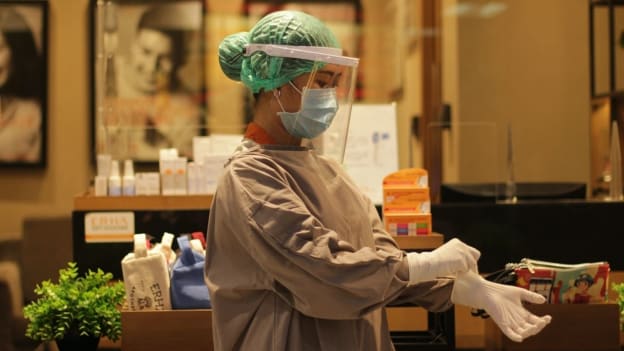Which critical workers in New Zealand face mandatory COVID vaccinations?

Workers who play a critical role in fighting the spread of COVID-19 across communities in New Zealand face new deadlines for their first dose of the vaccine, said crisis response leader Chris Hipkins.
Following the latest rules from the government, two segments of the working population will undergo mandatory vaccinations:
The first are "high-risk" workers in the health and disability sector, who must receive their first jab by 30 October and be fully vaccinated by 1 December.
The second are education staff who have direct contact with students and must be immunised with the first dose by 15 November and the second dose by 1 January 2022.
Which healthcare workers in New Zealand are required to take the COVID-19 vaccine?
-
General practitioners
-
Pharmacists
-
Community health nurses
-
Midwives
-
Paramedics
-
Healthcare workers in sites where vulnerable patients are treated (including Intensive Care Units)
-
Residential care, home and community support services
-
kaupapa Māori health providers
-
Non-Government Organisations that provide health services
Which education workers in New Zealand are required to take the COVID-19 vaccine?
-
Home-based educators
-
Workers in schools and early learning services:
-
Teacher-aides
-
Administrative staff
-
Maintenance staff and contractors
-
"Vaccination remains our strongest and most effective tool to protect against infection and disease, and we need as many workers as possible to be vaccinated to allow sectors to respond to the pandemic and deliver everyday services with as little disruption as possible," Hipkins said.
"While most people working in these sectors are already fully or partially vaccinated we can't leave anything to chance and are making it mandatory." However, exemptions may be made on a case-by-case basis.
The policy hasn't been an "easy decision," Hipkins said. But healthcare frontliners, such as doctors, nurses, care workers and support staff who directly work with vulnerable sectors need to "take this extra step" since they cover a range of high-risk occupations. Meanwhile, teachers and other education staff must understand that children aged 5 to 11 years, who have been entrusted to their care, won't yet be vaccinated in the foreseeable future, so teaching, administrative and support staff must take all necessary precaution to protect their students.
"People have a reasonable expectation that our workforces are taking all reasonable precautions to prevent the spread of disease, and government agencies have been working with them to ensure they are as protected as possible," the COVID-19 Response Minister said.
"A high rate of vaccinations will help to protect staff from getting sick and passing COVID-19 onto loved ones. It will also reassure those who are anxious about their children attending school and early learning services."















